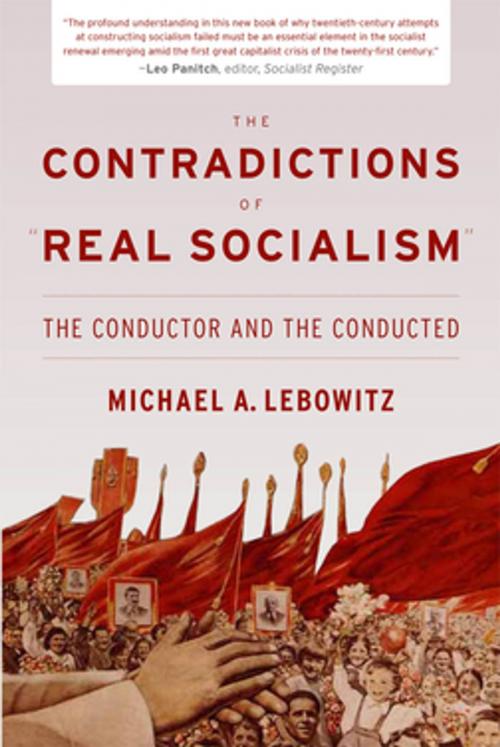The Contradictions of "Real Socialism"
The Conductor and the Conducted
Nonfiction, Social & Cultural Studies, Political Science| Author: | Michael Lebowitz | ISBN: | 9781583673386 |
| Publisher: | Monthly Review Press | Publication: | August 1, 2012 |
| Imprint: | Monthly Review Press | Language: | English |
| Author: | Michael Lebowitz |
| ISBN: | 9781583673386 |
| Publisher: | Monthly Review Press |
| Publication: | August 1, 2012 |
| Imprint: | Monthly Review Press |
| Language: | English |
What was “real socialism”—the term which originated in
twentieth-century socialist societies for the purpose of distinguishing
them from abstract, theoretical socialism? In this volume, Michael A.
Lebowitz considers the nature, tendencies, and contradictions of those
societies. Beginning with the constant presence of shortages within
“real socialism,” Lebowitz searches for the inner relations which
generate these patterns. He finds these, in particular, in what he calls
“vanguard relations of production,” a relation which takes the apparent
form of a social contract where workers obtain benefits not available
to their counterparts in capitalism but lack the power to decide within
the workplace and society.
While these societies were able to claim major achievements in areas
from health care to education to popular culture, the separation of
thinking and doing prevented workers from developing their capacities as
fully developed human beings. The relationship within “real socialism”
between the vanguard as conductor and a conducted working class,
however, did not only lead to the deformation of workers and those
elements necessary for the building of socialism; it also created the
conditions in which enterprise managers emerged as an incipient
capitalist class, which was an immediate source of the crises of “real
socialism.” As he argued in The Socialist Alternative: Real Human Development,
Lebowitz stresses the necessity to go beyond the hierarchy inherent in
the relation of conductor and conducted (and beyond the “vanguard
Marxism” which supports this) to create the conditions in which people
can transform themselves through their conscious cooperation and
practice—i.e., a society of free and associated producers.
What was “real socialism”—the term which originated in
twentieth-century socialist societies for the purpose of distinguishing
them from abstract, theoretical socialism? In this volume, Michael A.
Lebowitz considers the nature, tendencies, and contradictions of those
societies. Beginning with the constant presence of shortages within
“real socialism,” Lebowitz searches for the inner relations which
generate these patterns. He finds these, in particular, in what he calls
“vanguard relations of production,” a relation which takes the apparent
form of a social contract where workers obtain benefits not available
to their counterparts in capitalism but lack the power to decide within
the workplace and society.
While these societies were able to claim major achievements in areas
from health care to education to popular culture, the separation of
thinking and doing prevented workers from developing their capacities as
fully developed human beings. The relationship within “real socialism”
between the vanguard as conductor and a conducted working class,
however, did not only lead to the deformation of workers and those
elements necessary for the building of socialism; it also created the
conditions in which enterprise managers emerged as an incipient
capitalist class, which was an immediate source of the crises of “real
socialism.” As he argued in The Socialist Alternative: Real Human Development,
Lebowitz stresses the necessity to go beyond the hierarchy inherent in
the relation of conductor and conducted (and beyond the “vanguard
Marxism” which supports this) to create the conditions in which people
can transform themselves through their conscious cooperation and
practice—i.e., a society of free and associated producers.















